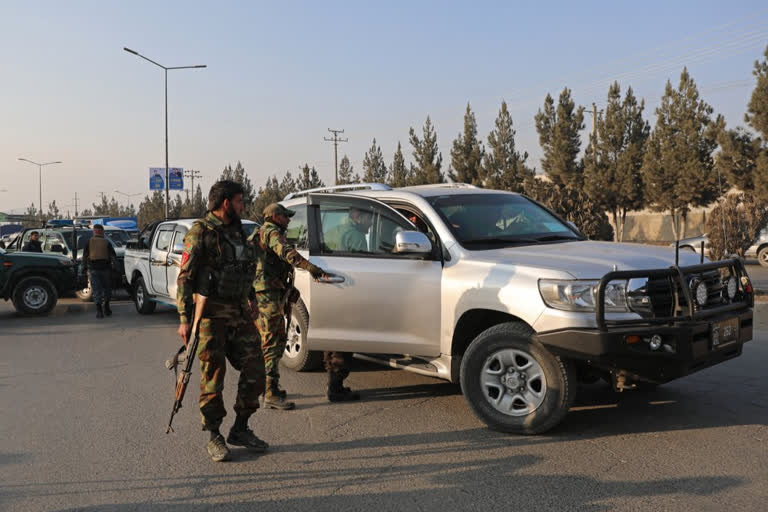Kabul:Every morning when Khan Wali Kamran left for work, he was afraid his children might be killed in Kabul’s streets before he got home in the evening. Finally, he couldn’t take it anymore, and a month ago he sent his four children to live with his parents in his home village.
He’s not the only one afraid. Afghanistan is supposed to be moving toward peace after decades of war, but to the people of the capital Kabul, turmoil only seems to be getting worse.
Frequent bombings have everyone on edge. It’s not just dramatic attacks like one that killed dozens at a university last year. There’s also been a string of targeted killings, like the bomb planted on the car of a prominent cleric that detonated Tuesday in the middle of busy morning traffic, killing him and his driver — one of four such bombings that day.
The tensions are increased because it’s not clear who is behind the attacks. Some are claimed by the Islamic State group, who took responsibility for the cleric’s killing and the killing of a judge Wednesday in eastern Nangarhar province. But many go unclaimed, blamed by the government on the Taliban who have denied responsibility for most attacks, raising suspicions that militias run by prominent warlords both allied with and opposed to the government are creating chaos.
Then there’s the surge in crime. Armed robbers brazenly rob shops or even mug people in broad daylight in public parks crowded with people, stripping them of money and phones at gunpoint. Cars stuck in traffic can be ransacked by thieves.
Read:|Taliban attacks increased in Afghan capital: US watchdog
In one case, organized thieves robbed three branches of the same supermarket in different parts of the capital at almost the same time on the same day. Kidnappers are known to snatch children and adult men from the streets, demanding ransoms from their families, anywhere from $50 to $5,000. Residents of Kabul have stopped going out after dark.
“We are afraid when we get in our car, go to the office, when we are near our home, in the mosque,” Kamran said. “Life has become hell.”
Fear so dominates Kamran’s world that he asked that The Associated Press not identify the village where he sent his four children, including his youngest, a 2-year-old son. Others who spoke to AP asked to be identified only by one name, afraid of drawing the attention of criminals or armed factions.
Last year, hope was high that a peace deal reached by the Taliban and U.S. government would lead to an end to more than four decades of relentless war and finally bring peace to Afghanistan. But subsequent talks between the Taliban and the Afghan government have been excruciatingly slow.
Many Afghans fear that the deteriorating security is a sign that, rather than peace, what is coming is yet another phase in the war, reminiscent of the chaos of the 1990s when warlords’ armed factions battled for power. That fighting came after the Soviets withdrew and before the Taliban took power. Now the Americans, who helped oust the Taliban nearly 20 years ago, are pulling out, their numbers down to 2,500 troops after former President Donald Trump accelerated the withdrawal.
Analysts say there are participants on both sides of the conflict who have more to gain from war than peace.
“The war is about power, not even about religion,” said Torek Farhadi, a former Afghan government adviser. “Some of the killings are by the Taliban, some by circles in Kabul who stand to lose wealth, power and status should peace come to Afghanistan.”
Ferdaws Faramarz, Kabul police spokesman, accused the Taliban of carrying out attacks to “create a gap between the people and government.”
Afghans say the deep corruption that permeates the government and security agencies has crippled their capacity and made them incapable of keeping Afghans safe.
